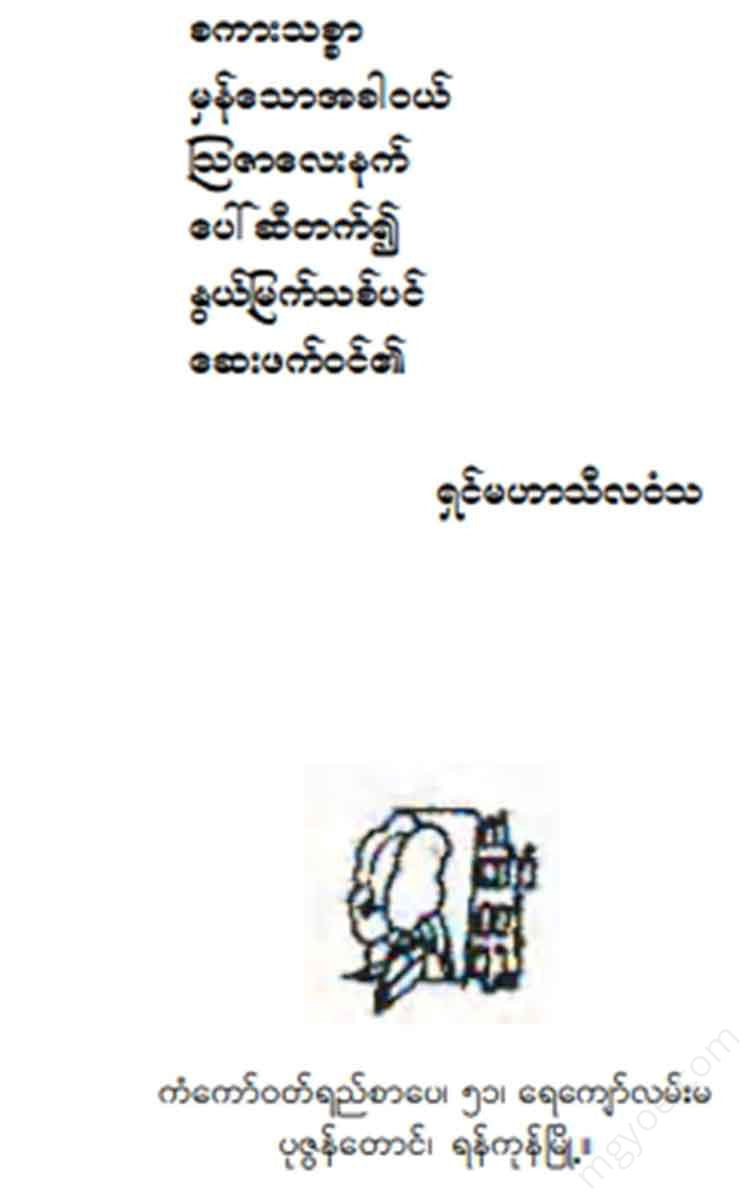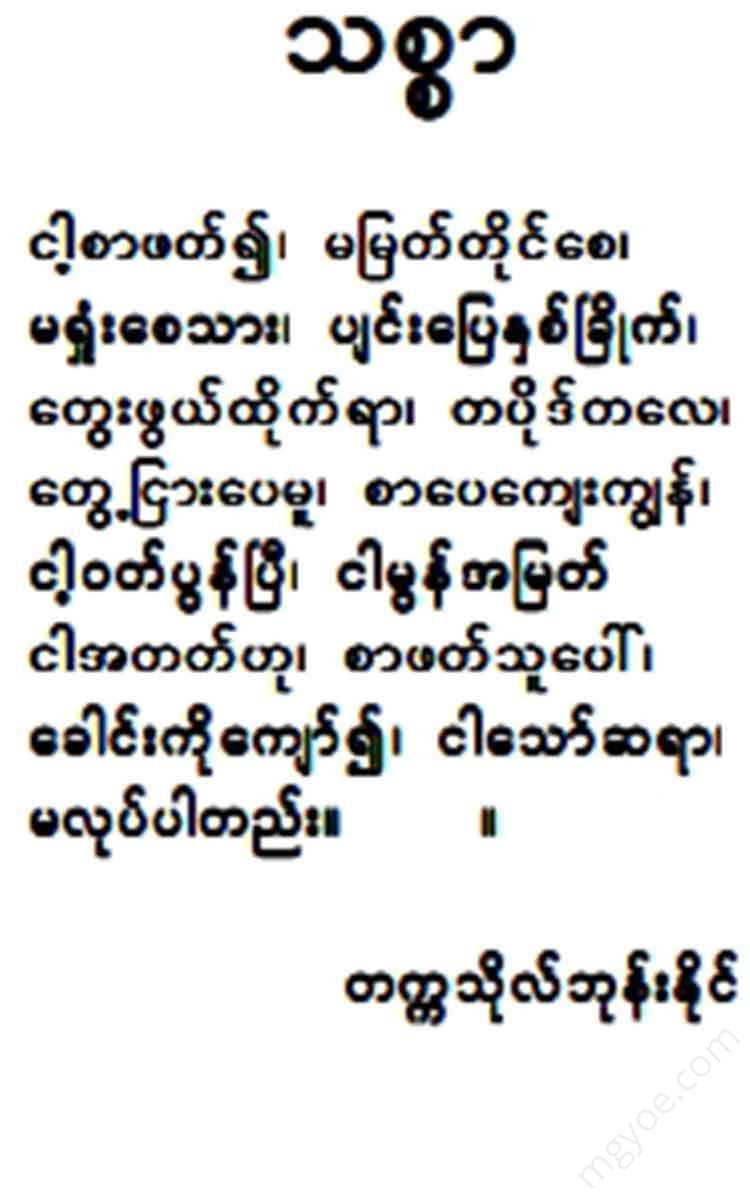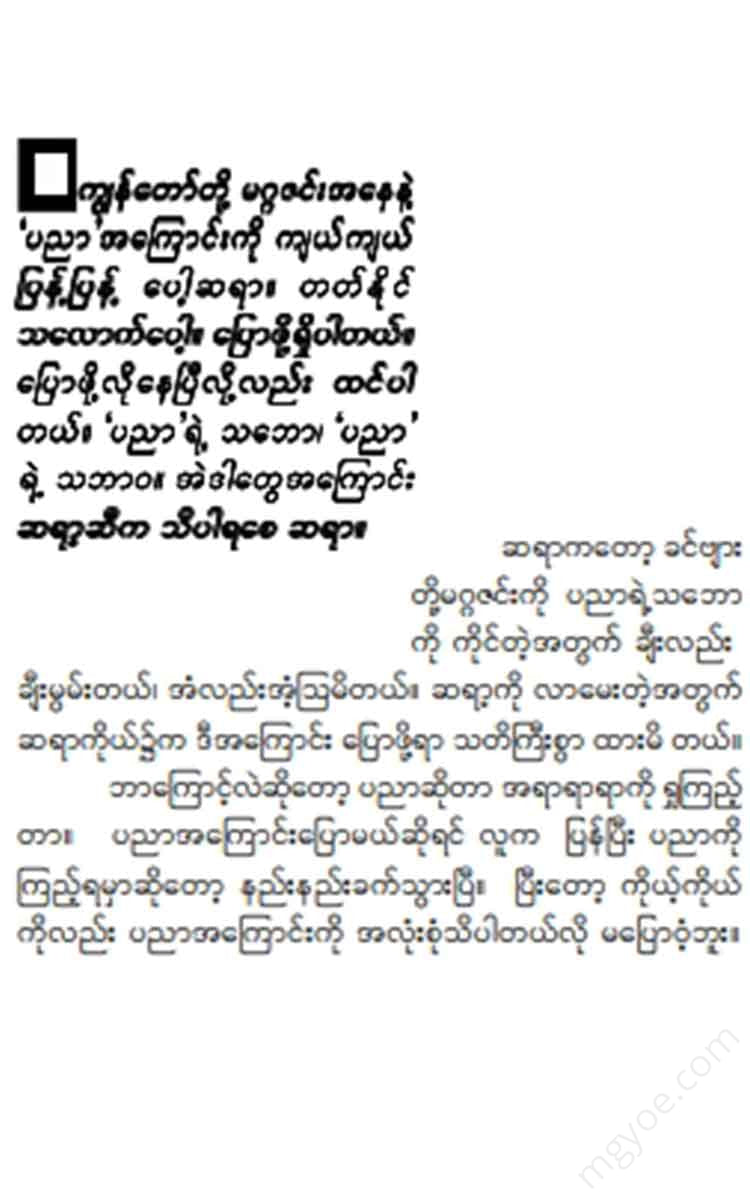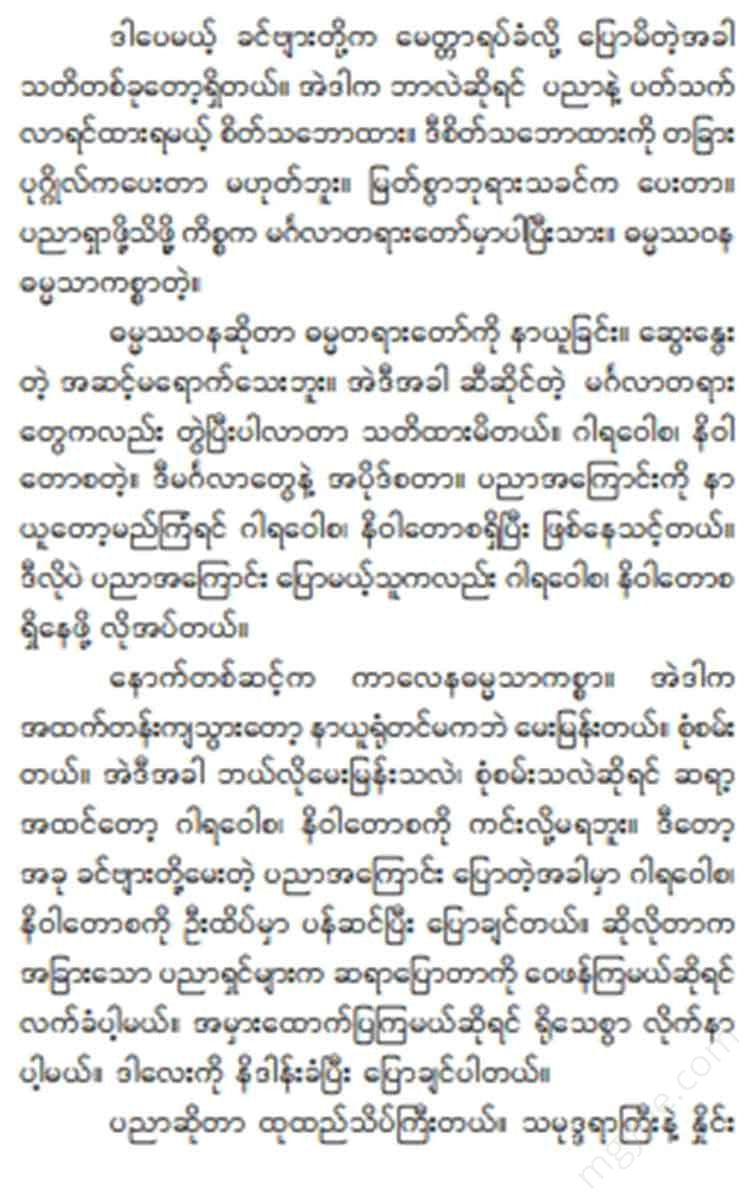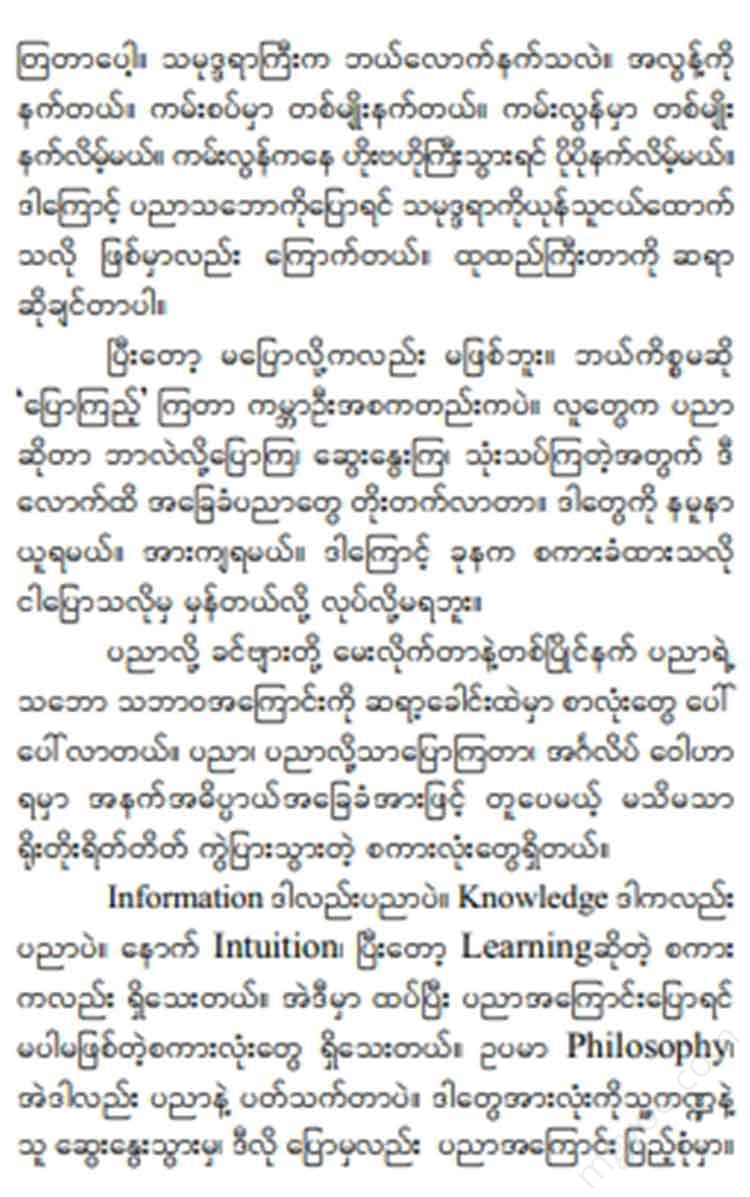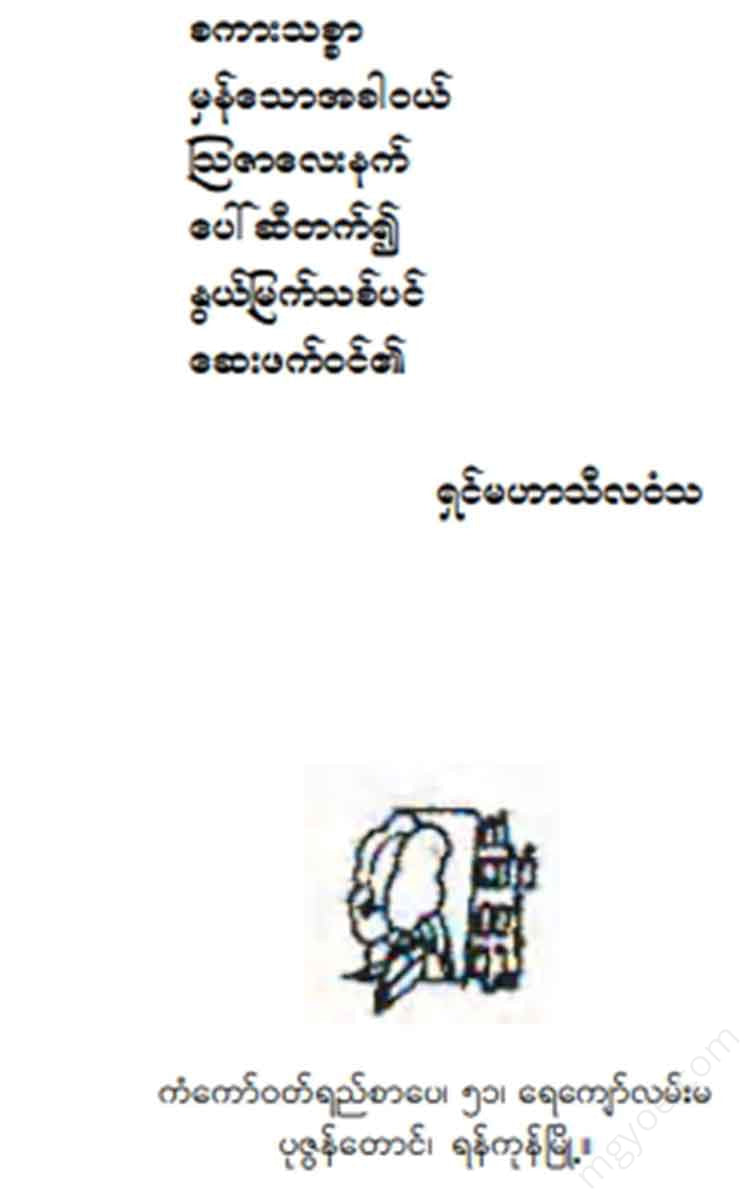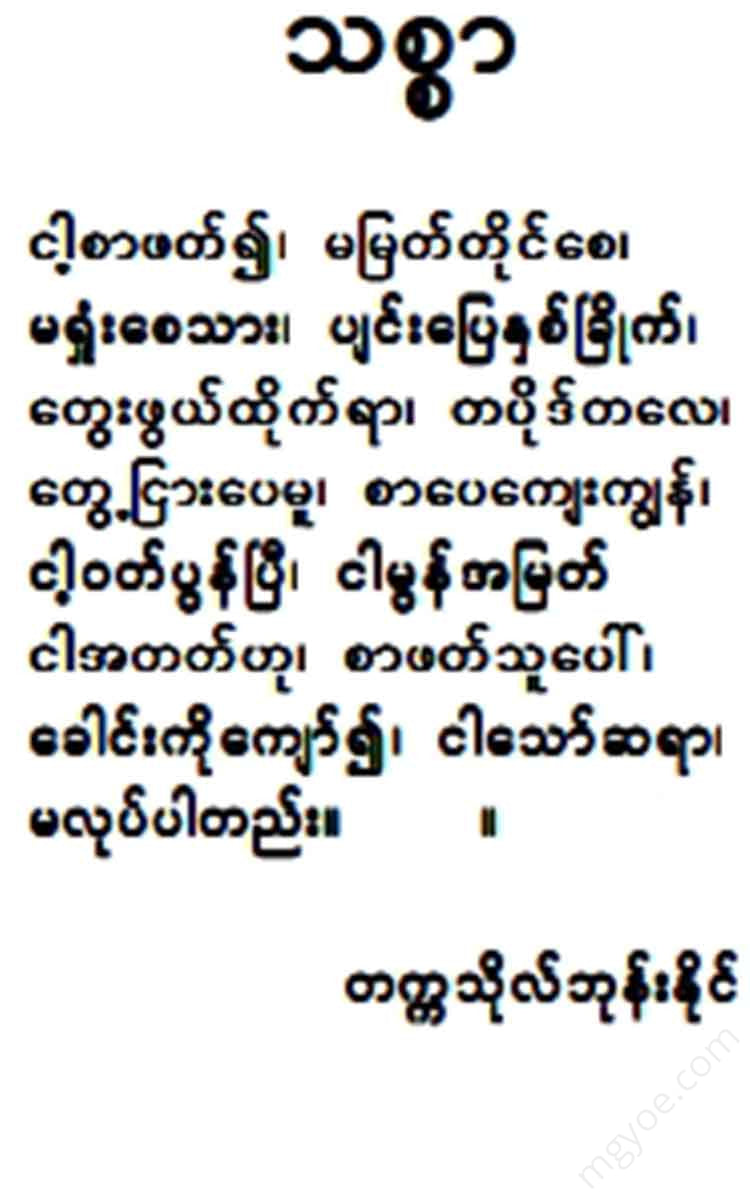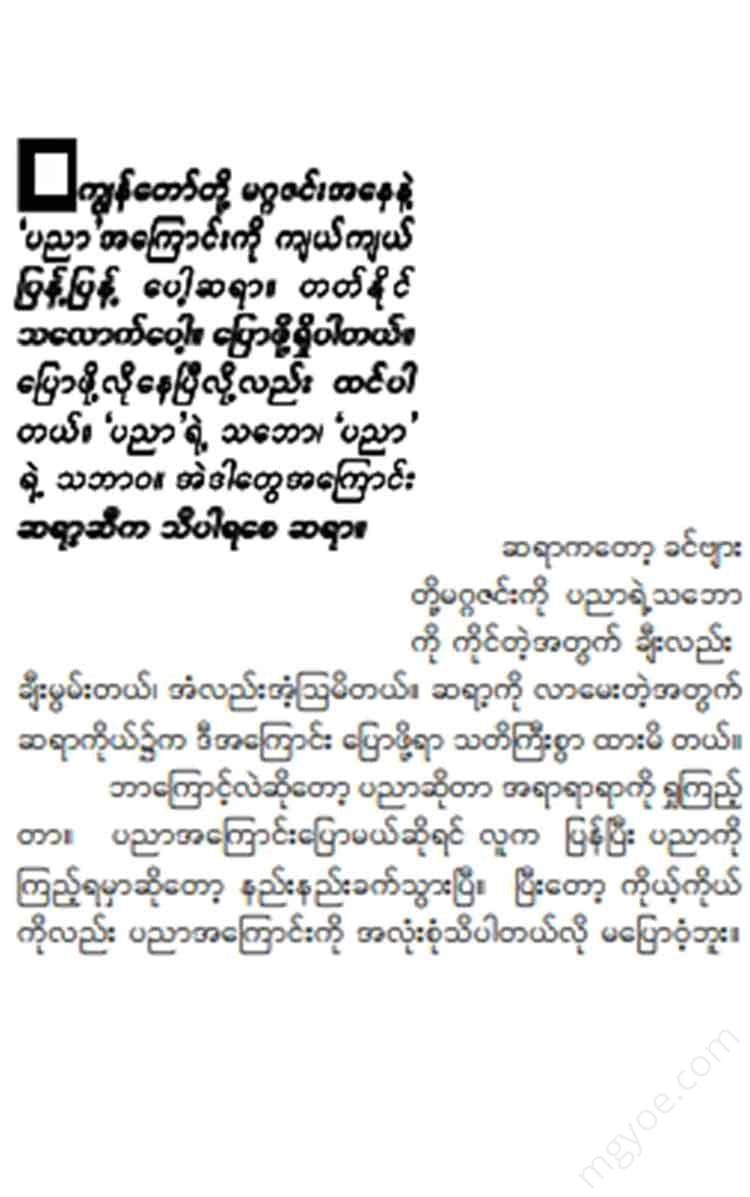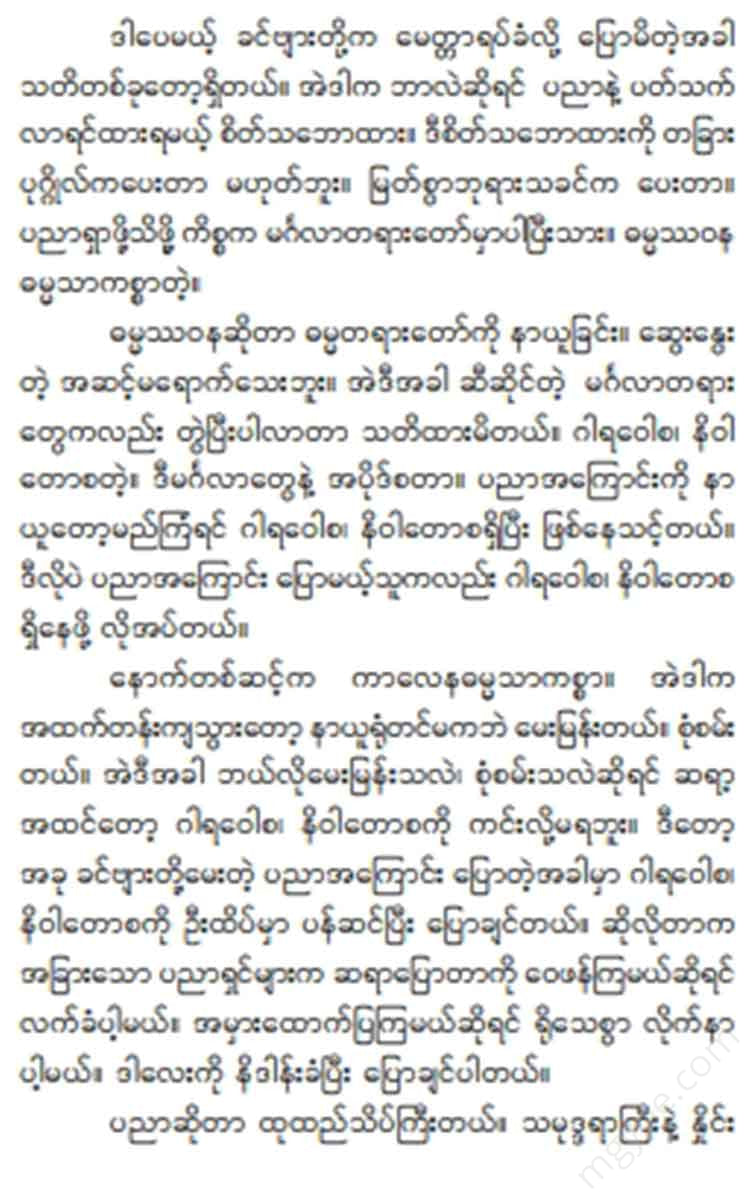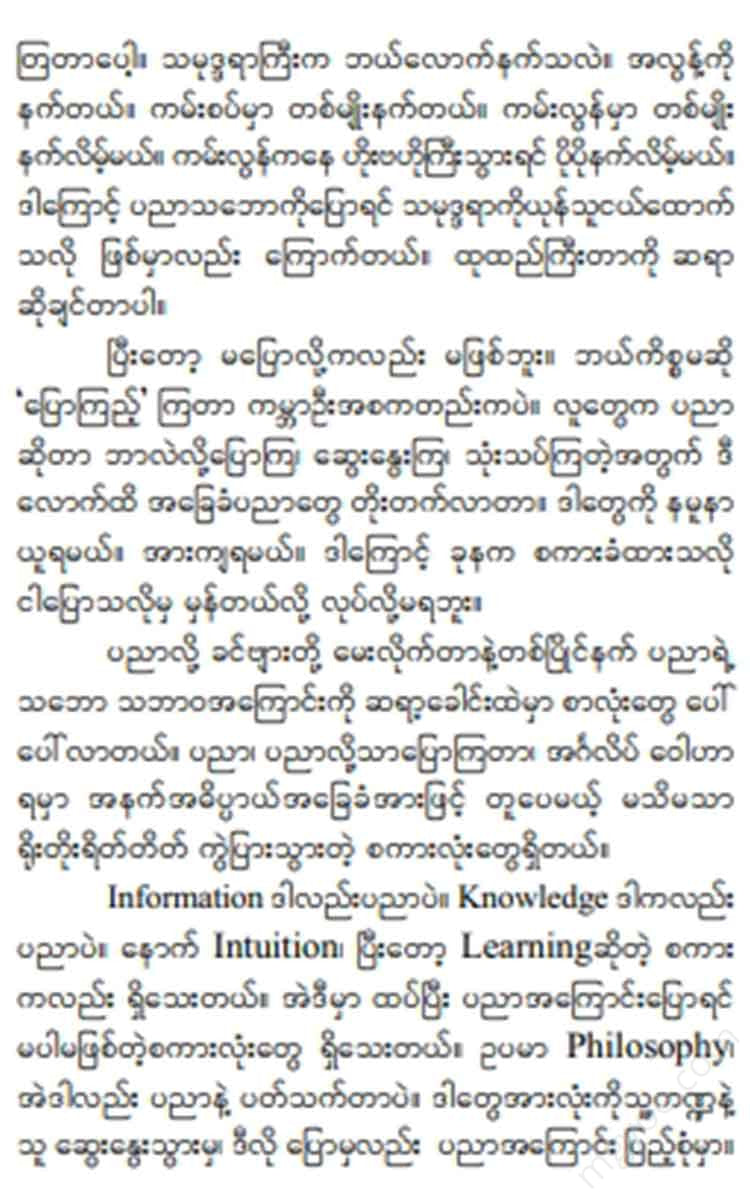Other Websites
University of Phonaing - The meaning of knowledge
University of Phonaing - The meaning of knowledge
Couldn't load pickup availability
What about Myanmar?
In the literal sense.
In Myanmar, there are many words related to wisdom that come from Buddhist culture. The Buddha preached and taught wisdom in a very unique way. Wisdom is the top in Buddhism. The Buddha preached three teachings: morality, concentration, and wisdom. When you look at this in depth, you will find words that you should pay attention to. The most important is the word wisdom that teachers have taken from Myanmar.
Then there's the word "intelligence," then there's the word "wisdom," then there's the word "knowledge," as I just mentioned, and then there's the word "knowledge," which is not very well known. The word "passion." Then there's the word "philosophy." All of these will have to be included in the discussion of knowledge.
First, I will explain in very general terms that are understandable to most people. What is wisdom? Wisdom can be considered a quality of a person, a human energy. A wise person has the energy of wisdom. When it comes to quality, it cannot be touched with the eyes, ears, or hands. It can only be known with the mind. Its energy is the mind. Wisdom is the energy that benefits people. What kind of beneficial energy is it? Generally, wisdom can make people do what they want to do and prevent what they don't want to do. This is a very high meaning, so I will explain it. It needs to be understood.
When talking about knowledge, there is knowledge, there is knowledge. So, when we use the English word Information, we mean knowledge. What kind of knowledge is knowledge? How do you know? There is knowledge by looking. There is knowledge by hearing. There is knowledge through what others say. However, there is no guarantee that information is knowledge. It may not have infallible accuracy.
I know it when I know it. I want to know it when I know it is true. I want to know it when I know it is true. I want to know it when I know it is true even if it is half true. That's why there are words these days, right? Disinformation and Misinformation. This is information that people give to people, and people believe it is true.
By doing so, the intelligent can play the less intelligent. It can be good or bad. It can be right or wrong. There are no guarantees.
Knowledge is also a teacher.
Knowledge is
He is a little closer to the truth. That kind of knowing is called. The collection of information based on observation, study, etc. is called Knowledge. It is not just one. It is not just that collection, but the thoughts that are based on the collected information and draw conclusions is called Knowledge.
The body of knowledge that I have explored. But from that body of knowledge, I think and draw conclusions. An idea is a matter of the mind. It is not something that can be grasped with objects. In English, it is called an idea. Plato called it the id. It is the same. A matter of the mind.
Again, not just knowing and understanding, but also understanding, the kind of knowledge that reaches the level of understanding, not just knowing, is called Knowledge. The word Knowledge also has the connotation of understanding.
Another word, Learning, is usually said to be learning. Its meaning is the knowledge gained through study. In most fields such as philosophy and language, the study of knowledge is called Learning. It is different from knowledge and Learning. It is similar. But knowledge is broader. I want to be more specific.
Intuition is something that is very rarely used by people. He also knows it. But what kind of knowledge is it called? It is a deep knowledge that is not known by the general public, and it is called a kind of knowledge that cannot be understood by the general public. In Pali, it is called आणाना विशाया. It is difficult and profound. It has meanings that cannot be easily known.
So, for example, nowadays, people talk about it. Everyone has heard of Relativity, they talk about it. I don't know if they really understand it. Only people like Einstein can understand this. You can't follow everything. There are these ideas.
The most comprehensive word related to all of these is wisdom, wisdom is called “wisdom” because it is a Pali word, and English translators often translate wisdom as “wisdown.” It is not ordinary knowledge. It is not a collection of ordinary knowledge. It is a high-level understanding based on a broad understanding. Here is the use of wisdom. It is a meaning. It is not just knowing how to understand. Based on knowing how to understand, a person has the ability to decide. And then he understands from every corner of the world. That is what is called wisdom.
In English, when we interpret wisdom (wisdom implies superior judgment and understanding based on broad knowledge), wisdom is not just common sense, but a sense that can lead and maintain people in areas where they work, talk, and think.
In Pali, there is a saying that does not say "knowledge is not a virtue". The Lord Buddha said that in the minds of the noble monks, knowledge always comes first. Ordinary people often do not put knowledge first, but things other than knowledge take precedence, which is why there is so much sadness and heartache in the world.
Therefore, wisdom is not just about knowing. It is about maintaining and improving one's physical, mental, and spiritual karma. It has many good meanings. It should be understood in a general sense.
The word 'knowledge' in Burmese is
Where does the word wisdom come from? It comes from the word pajanana. When it comes to very difficult wisdom, the Buddha used the word pajanati. For example, in the Mahasatipatthana Sutta, where the Buddha described the only path and the only vehicle to reach the path of Nibbana, he used the word pajanati repeatedly.
For example, if you walk, you know that you are walking. If you sit, you know that you are sitting. There, the Buddha used the word “know” as a pajanāti. Because the nature of knowing
There are many Pali words that say. Pajanati is the highest. It is known by wisdom that if you walk, you walk. That is why it is called pajanati. It is not used without reason. The Buddha said “know” in general, know deeply, know from all sides, know deeply. It is a little difficult to translate into Burmese.
The word "wisdom" also comes from the word "pyazanya". It's the same. It comes from that same word "pyazanya".
There is a word related to wisdom. Wisdom is also knowledge. In Pali, it means knowing wisdom, wisdom. When we talk about wisdom, we talk about wisdom, and when we talk about wisdom, we talk about wisdom. In terms of meaning, they are often similar. They are just used differently according to grammar.
For example, I have heard the words "manga nyan" and "phul nyan". In the context of "nyan", "magga nyan" and "phul nyan" are also used. Similarly, "sinta maya nyan", "sutama nyan", "sota maya nyan", "bhavana nama nyan" are also used, as are "seinta maya nyan", "suta maya nyan", "sota maya nyan", and "bhavana nama nyan". In some places, they can be used interchangeably.
That is why the wise are called in many ways. Most people have heard of the wise as a pundit. There is also Medavi. Medavi also refers to the wise. Because Meda also refers to knowledge. Similarly, Vinyu is also called the wise. Kavi is also the wise, and similarly there is the wise called Nani. The words are related to each other.
When we talk about knowledge, there is a word that is inevitably associated with it. Wijja. The Pali dictionary defines Wijja as knowledge, wisdom, divine knowledge, mantra, and ariya nyan. There are many different meanings for the same word. In English, Wijja is known as knowledge or learning or schorlarship or science, wisdom, skill, and so on.
In the Dhamma, when talking about the attainment of wisdom, the words sakkhon udapadi, nanam udapadi, viñña udapadi, vijja udapadi, aloka udapadi are used. Udpadi means that which is evident. Udpadi means that which becomes clear and distinct. Here, the words viñña and vijja are used. If the concepts that are hidden there are explained clearly, it will become a book. I will not expand on this. Those who want to know more, please continue to read the books of the Buddha and the books preached by the great sages. That is all I want to say.

